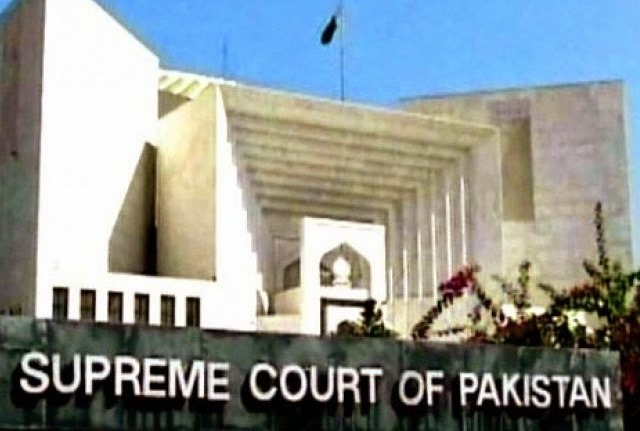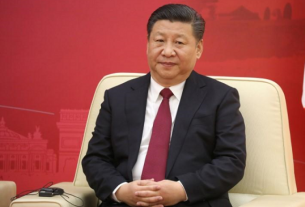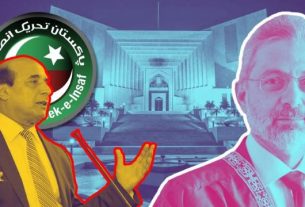ISLAMABAD – The Ministry of Defence has asked the Supreme Court of Pakistan to set aside its order dated October 23 declaring the trial of civilians, arrested aftermath of 9th May incident, as null and void, and they be tried in criminal courts established under the ordinary and/or special law.
A five-member larger bench, headed by Justice Ijaz ul Ahsan and comprising Justice Munib Akhtar, Justice Yahya Afridi, Justice Sayyed Mazahar Ali Akbar Naqvi and Justice Ayesha A Malik by a majority of 4-1 declared that clause (d) of subsection (1) of Section 2 of the Pakistan Army Act, 1952 (in both of its sub clauses (i) & (ii)) and subsection (4) of Section 59 of the said Act are ultra vires the Constitution and of no legal effect.
The Secretary Ministry of Defence Monday through Advocate Khawaja Haris filed the Intra- Court Appeal (ICA) against the apex court order. Last week the federal government and Ministry of Interior and Sindh government had filed the ICA. However, the Sindh government later withdrew it. The federal government told the Supreme Court that the events of 09-05- 2023 indicate a premeditated and intentional attempt to undermine the country’s armed forces and inhibit the country’s internal security.
The Secretary Defence prayed to the Court to declare that the trial of civilians before military courts under the Army Act, 1952, is not permitted by and is violative of, inter alia, Articles 4, 9, 10A and 175 of the Constitution, and such trials for the offences allegedly committed during the 9 May incidents and covered under the various FIRs mentioned in paragraph 6(e) above are ultra vires the Constitution, void ab initio and of no legal effect and the decision of the Federal Government dated 19 May 2023 rubber stamping the decision of the Corps Commanders Conference dated 15 May 2023 to conduct such trials is liable to be set aside.
It requested the court to declare that Sections 2(1)(d) (ii) and 59(4) of the Army Act, 1952, are ultra vires the Constitution and void, or in the alternative cannot be invoked for the offences allegedly committed during the 9 May Incidents and covered under the various FIRs mentioned in paragraph 6(e) above. It also prayed to declare that Section 94 of the Army Act, 1952 and the 1970 Rules are inherently discriminatory, in direct violation of inter alia, Articles 25 and 175 of the Constitution and are, therefore, ultra vires the Constitution and void. It further requested to declare that the referral of the trials of various accused by the Anti-Terrorism Courts to the military courts under Sections 94 and 95 of the Army Act, 1952 and the 1970 Rules is the result of a lack of application of mind by the learned Anti-Terrorism Courts, and hence arbitrary, discriminatory and in violation of Sections 94 and 95 of the Army Act, 1952 as well as Article 25 and 175 of the Constitution and consequently, are void.
The Secretary Defence requested the Court to issue a writ of prohibition against the constitution of military courts and the referral of civilians’ case for trial before military courts, at least for the offences allegedly committed during the 9 May Incidents, and also declare that any cases referred and/or trials commenced till date are in violation of the law and Constitution.
He further asked to issue a writ in the nature of habeas corpus for the release of all persons handed over to or picked up by the military authorities for trial before military courts for the offences allegedly committed during the 9 May Incidents and return the custody of all such persons to the civilian institutions which are vested with the jurisdictional, lawful and constitutional mandate to determine and adjudge the fate of such persons.
He also asked to issue a writ of mandamus to direct all relevant federal and provincial institutions and authorities, under the supervision of the apex court, to probe into and discover the true facts surrounding the 9 May Incidents, especially the seemingly deliberate absence of resistance on the part of the police and other law enforcing agencies.__The Nation





